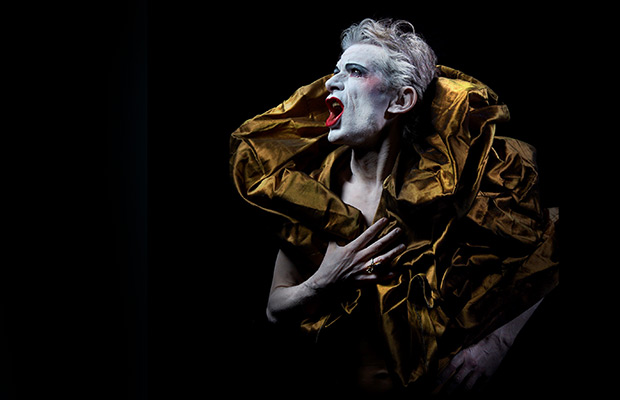
© Manuel Vason. (Click image for larger version)
Jean Rene Lemoine
Medea (Written in Rage)
★★★★✰
London, The Place
5 October
@medeainrage
www.theplace.org.uk
Although Medea, the much-maligned, feisty sorceress of ancient Greece has been extensively written about and reincarnated in several films, operas and plays, rarely has her story been autobiographical. French playwright Jean-Rene Lemoine does just that in his narrative Medea (Written in Rage). Here, Medea, embodied by the mesmerising Francois Testory is portrayed as an intelligent, passionate and transgressive woman who tells her own version of her adventures with the historic Jason and her ultimate abandonment by him.
What is so clever about Lemoine’s Medea is that while rooted in Euripides’ epic tragedy, the monologue addresses many modern issues as it seamlessly weaves between ancient Greece and contemporary Europe. Gritty themes of incest, exile, revenge, desire and betrayal make the show into a feast of transgressions and taboos while Testory’s androgynous incarnation of Medea is captivating. Envisaged through a queer perspective, Neil Bartlett’s translation, adaption and direction of Lemoine’s narrative is explicit, dramatic and emotionally charged yet also understated. While there are graphic accounts of sex and gory murders, Bartlett avoids gratuitousness or melodrama. This has much to do with Testory’s dispassionate delivery. Mixing witness statements and poetic incantations, slipping between rationality and insanity, Testory’s performance, enhanced by Phil Von’s eclectic live and pre-recorded music score and Chahine Yavroyan’s atmospheric lighting is gripping.
Medea first appears on stage through ominous, smoke-filled lighting, a tall figure stepping gingerly downstage on built-up platform shoes, head covered, bringing a sense of foreboding. Clothed by designer Mr. Pearl in a tastefully dark, satin dress and glamorous golden cloak fringed with red to give it a bloody look, she unveils herself to reveal a demure, elegant figure with a faded beauty; a sophisticated, vintage celebrity rather than a dangerous witch.
Testory is a phenomenal story teller; confessional and intimate, I could listen to his lilting intonations forever. His Medea speaks her soliloquy in a rich collage of languages, sounds and song: English punctuated by French, Italian, operatic fragments and musical or verbal interactions by Von. A slight middle-eastern accent sometimes breaks through the French suggesting a Medea who is subtly foreign. Although there are moments when she screams out in anger, most of her speech is inflicted with a worldly weariness, a melancholia that arouses great empathy. Testory slides over the textured narrative, (sometimes stumbling, sometimes pausing), exaggerating certain words like ‘exiled’, ‘foreigner’ or ‘abandoned’ through play-back and repetition. His body-language is also undemonstrative but effective in illustrating his words – hand gestures, turns of the head, spatial awareness, a reflective gaze. While he is largely static as the stands before the microphone hampered by his shoes, the power of his spoken word and actions are mostly enough, although in places there is disappointing absence of movement.
Medea describes her carnal and murderous crimes in a composed, unflinching manner: her incestuous sex with her brother Absyrtus to spite her stifling family, his brutal murder to escape her bullying father, the violating sex she has with Jason and his friends for his gratification, the drowning of her sons and the poisoning of Jason’s new bride Glauce. We hear about her intoxicating desire for Jason when she first sees him but she never dwells on her own pleasure. Her coolness helps to position her as a sexually deviant and supernatural being.
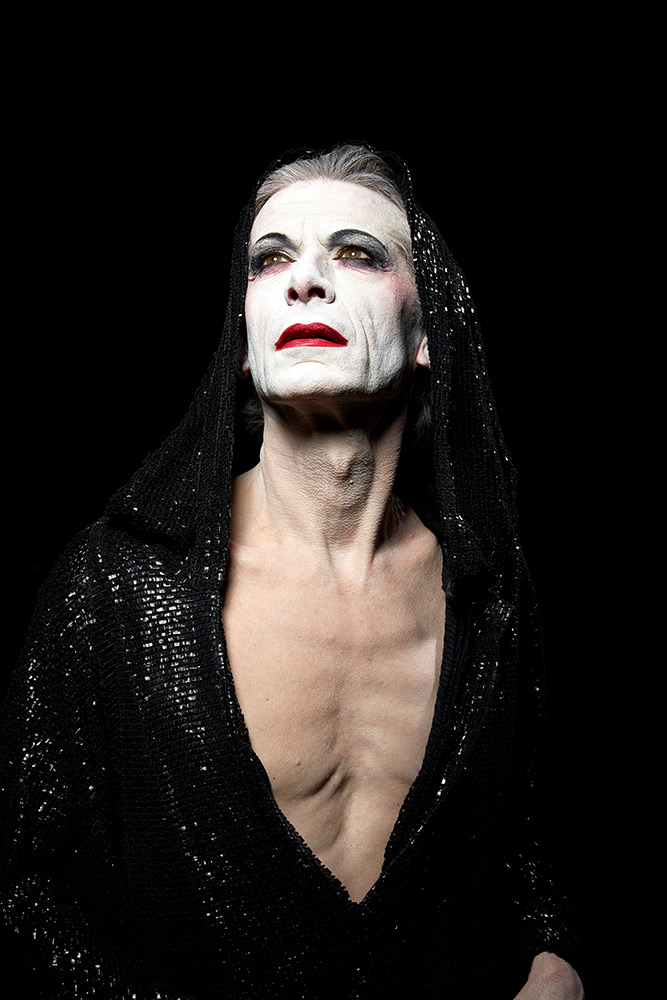
© Manuel Vason. (Click image for larger version)
Fast-forwarding her story in time and location, she talks about her loneliness and bitterness as she sits in the unbearably hot sun by the pool in some luxurious European mansion, always an outsider, waiting for her husband to return, like an abandoned celebrity wife on a chat show. Her intense account of how she finishes her glass of wine, dips into the pool and methodically drowns her sons is deliciously devastating.
Testory is a delicate, charismatic figure. Sexually beguiling his performance as a mature woman is utterly convincing but there’s a fascinating interplay between masculinity and femininity that keeps us guessing. Through such ambiguity, he creates a Medea that will exist in our imaginations as a woman who is free from the confines of sexuality, race and convention, understood and ultimately a survivor.






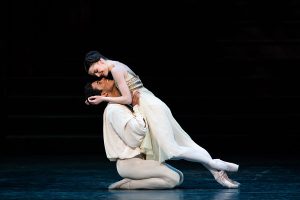
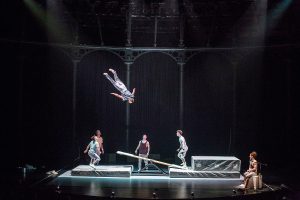
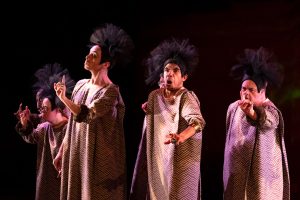


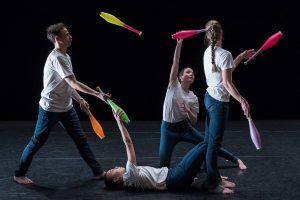

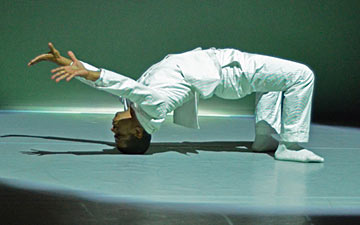



You must be logged in to post a comment.